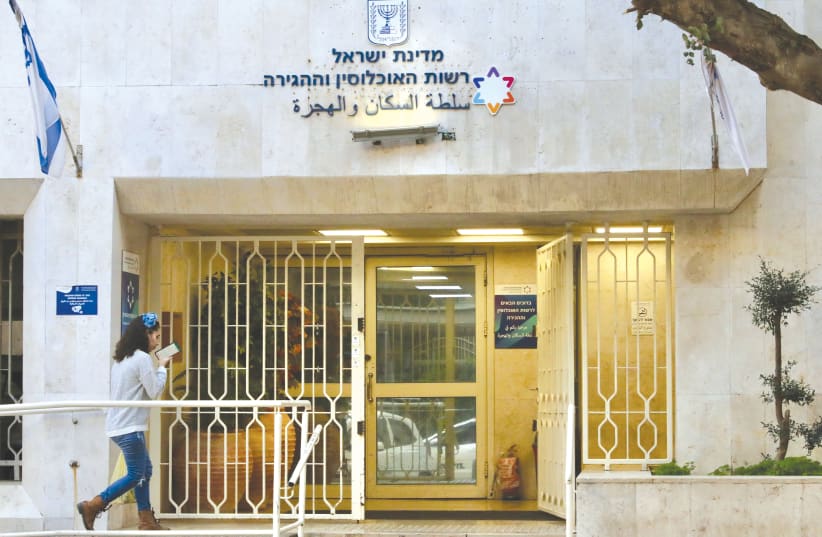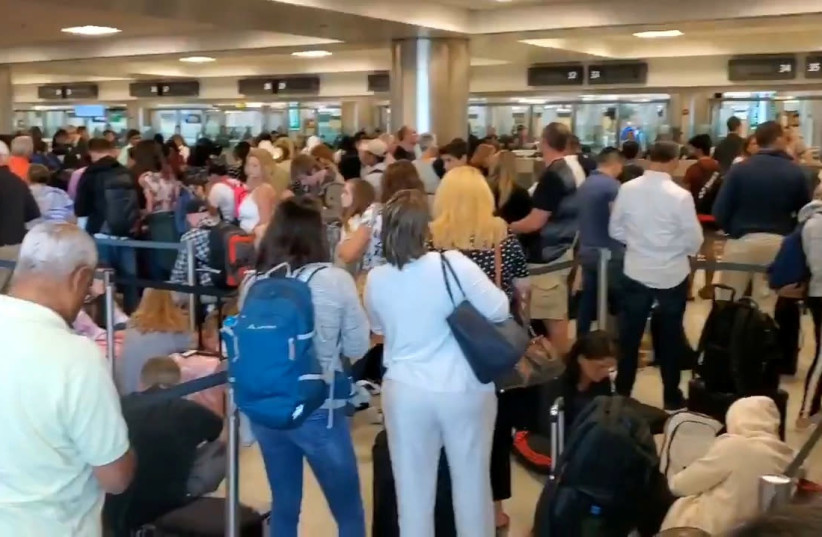Getting on a plane has important tax consequences, but it now has COVID-19 consequences too.
COVID-19 travel restrictions and lockdowns have had a major impact on the US and Israeli immigration policies.
Some of these effects were unexpected by many Israelis and their families. For instance, prior to the pandemic, children who were born overseas to an Israeli parent could enter Israel with a foreign passport, even though they were technically Israeli nationals.
Now, entry is barred to them unless they are in possession of an Israeli passport. While this regulation is not new, it has not been stringently enforced. To address this problem, the Israeli Population and Immigration Authority has eased the registration rules relating to the birth of Israelis abroad.
COVID-19 is one of the main reasons for the significant delay in US visa processing.
Beginning in February 2020, the Trump administration imposed five separate travel restrictions on individuals who had been present in certain countries where COVID-19 epidemics were occurring.
On March 20, 2020, as the pandemic spread, the US Department of State suspended “routine visa services” at all embassies and consulates worldwide. The worldwide suspension remained until mid-July, after which some consulates began slowly to reopen but have not been able to return to normal.
Every day we receive phone calls from Israeli businesspeople, investors, and private citizens who are unable to schedule B (Business/Tourist) visa interviews; the first appointment presently available is in September 2022. In some cases, we are heartbroken to learn about clients’ personal circumstances.
For example, we have clients who have missed fertility treatments or are unable to visit seriously ill family members or attend a dear friend’s wedding.
We have a client who has not been able to visit his children for over a year.
The US Embassy in Israel, like other posts around the globe, are doing their best to deal with the situation. However, the lack of manpower and local Covid travel restrictions has left them powerless.
According to the American Immigration Lawyers Association, a return to normalcy is not expected until 2023. The US Department of State acknowledged the problem and has been trying to implement initiatives, as seen in the expansion of the “interview waiver program,” which enables the extension of a US visa by mail without the need for an interview at the US Embassy.
The Israeli consular posts in Israel have been highly efficient in implementing this program.
Another significant initiative has also been the first and only post to allow Zoom interviews for minors born to US citizens. Unfortunately, many Israelis don’t qualify for these waivers and are faced with extended wait times.
Our suggestion for employers and businesspeople is to explore the option of obtaining employment visas such as E-1/2, L, H or O which are being processed without significant delays at the Tel Aviv Branch and Jerusalem Embassies. In addition, the most recent initiative from the US Department of State has given the US consular officers special authorization to waive in-person interviews for many of the US employment visas until the end of 2022.
There is also an option to file a request to expedite processing as there are many clients with urgent travel needs. However, such requests are approved in limited circumstances, primarily for urgent medical reasons.
The impact of COVID-19 is also seen with Israeli inbound immigration. At the beginning of the outbreak, the arrival of foreign experts in Israel was impossible. With time the Israeli government created a mechanism for the entry of foreign experts.
This process required the Israeli employer to apply for approval from the relevant government ministry and convince them that there is a critical need for the applicant.
Israel plans on reopening its borders for foreigners arriving from yellow and orange countries starting Sunday, January 9th. The list of red countries is also expected to change.
Foreign experts will probably not require entry permits but will have to meet various requirements of the Ministry of Health, which change frequently.
The Israeli immigration authorities and the US State Department are most certainly aware of the difficulties that have arisen due to the pandemic.
We are seeing attempts to create processes and adjust the rules and we have been accustomed to seeing daily changes in the immigration process and procedures. Unfortunately, those changes are not being implemented as fast as needed and certainly not as much as needed. Many changes cause greater confusion and ambiguity. The bigger impact is seen in the labor shortage in Israel and the US. Until things return to normal, it is advisable to use creative thinking and seek assistance from an immigration professional.
Shira@ak-immigration.com
The writer is a US-Israeli lawyer specializing in immigration law, and Partner at AK Immigration in Ramat Gan.


